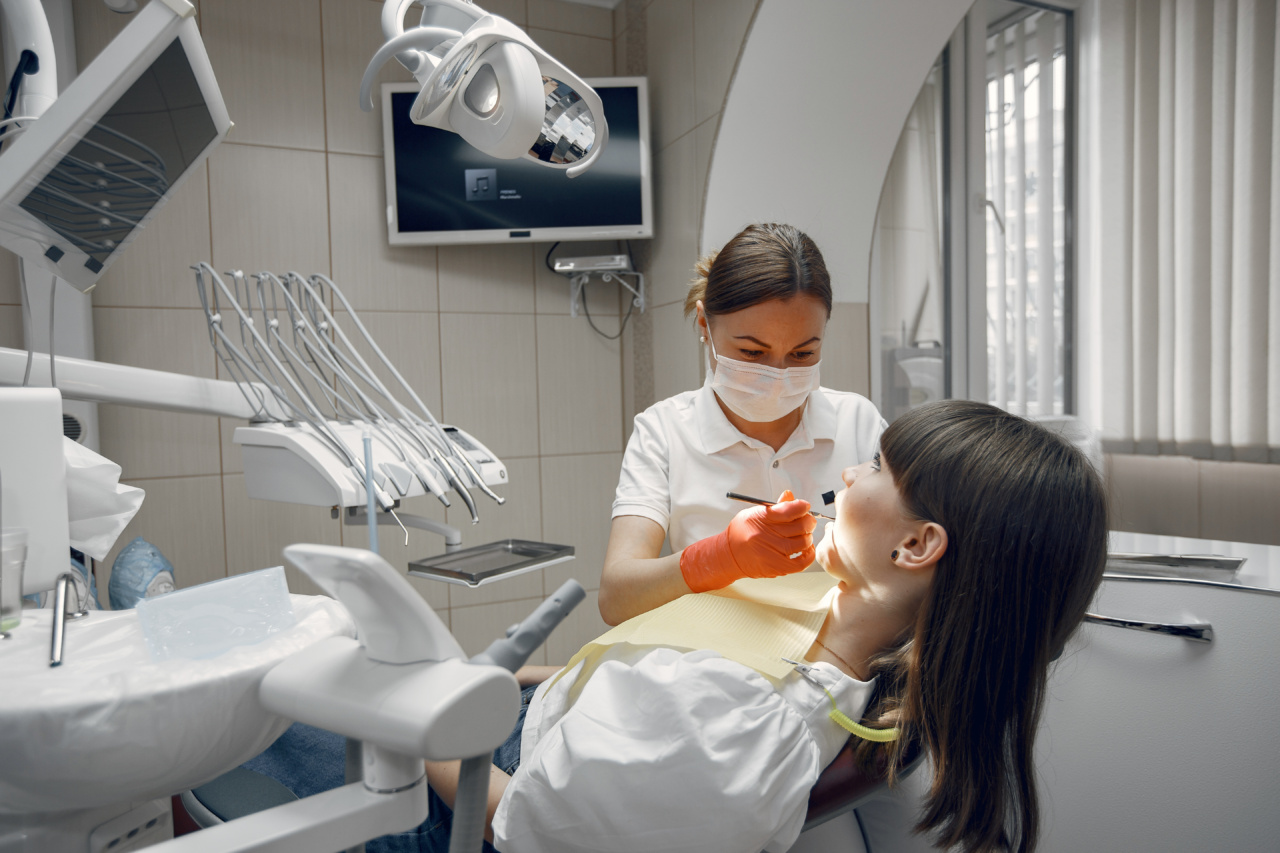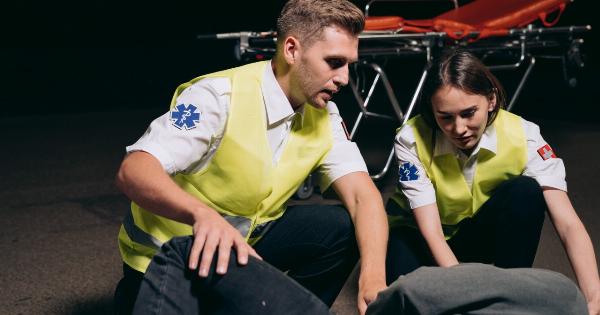When it comes to dental health, injuries can occur unexpectedly, causing pain and discomfort. Whether it is a chipped tooth, a broken tooth, or a knocked-out tooth, swift and appropriate action can help save the tooth and prevent further complications.
Understanding the basics of treating teeth injuries is crucial for everyone, as it can make a significant difference between preserving a healthy smile or facing long-term dental problems. In this article, we will explore various common teeth injuries and discuss the necessary steps to take for immediate treatment.
1. Chipped Tooth
A chipped tooth is one of the most common dental injuries. This can happen due to various reasons, such as accidents, biting down on hard objects, or sports-related impacts.
When a tooth is chipped, it can cause sharp edges and sensitivity, making it important to seek treatment promptly.
If you have a chipped tooth, try to find and save any chipped fragments if possible. Rinse your mouth with warm water, and if there is bleeding, apply gentle pressure with a clean gauze or cloth.
To reduce swelling, you can apply a cold pack or a cold compress to the affected area. It is essential to contact your dentist as soon as possible to schedule an appointment for treatment.
2. Fractured Tooth
Similar to a chipped tooth, a fractured tooth can occur due to accidents, trauma, or biting down with excessive force. Unlike a chipped tooth, a fracture can extend further into the tooth, potentially reaching the root.
Immediate treatment is crucial to prevent infection or further damage.
If you suspect you have a fractured tooth, rinse your mouth with warm water to clean the area gently. Applying a cold compress can help reduce swelling and provide temporary pain relief.
Contact your dentist immediately, as a fractured tooth often requires professional intervention to restore its strength and prevent complications.
3. Knocked-Out Tooth
A knocked-out tooth is a dental emergency that requires immediate attention. Whether it happens during a sports activity, an accident, or a fall, acting swiftly can increase the chances of saving the tooth.
When a tooth is knocked out, it is essential to handle it with care, avoiding damage to the root or surrounding tissues.
If you lose a tooth, carefully pick it up by the crown, avoiding touching the roots. Rinse the tooth gently with water if it is dirty, but do not scrub or remove any tissue fragments.
Try to reposition the tooth back into its socket if possible, applying light pressure. If this is not feasible, place the tooth in a container of milk or saline solution to keep it moist. Contact your dentist immediately and bring the tooth with you, as there is a possibility of reattaching it if acted upon quickly.
4. Dislodged Tooth
A dislodged tooth occurs when a tooth is forced out of its original position but is still partially attached. This type of injury can be incredibly painful and requires immediate dental assistance.
Leaving a dislodged tooth untreated can lead to infection or tooth loss.
If you have a dislodged tooth, carefully try to reposition it back into its original position using light pressure. Do not force it, as this can cause further damage.
To alleviate pain and reduce swelling, you can apply a cold compress to the affected area. It is crucial to contact your dentist immediately to schedule an appointment and receive appropriate treatment.
5. Soft Tissue Injuries
Teeth injuries often involve damage to soft tissues, such as the tongue, lips, or gums. Whether it is a laceration, puncture, or tear, addressing soft tissue injuries promptly is essential to prevent infection and promote healing.
If you experience a soft tissue injury, gently rinse your mouth with warm water, and apply pressure with a clean gauze or cloth to control bleeding. If the bleeding persists or the injury is severe, it is crucial to seek immediate medical attention.
Your dentist may also need to assess the area to ensure there is no damage to the teeth or underlying structures.
6. Dental Abscess
A dental abscess is a collection of pus caused by a bacterial infection. It often results from untreated tooth decay or dental trauma. Dental abscesses can cause severe pain, swelling, and an overall feeling of illness.
Prompt treatment is necessary to prevent the infection from spreading to other parts of the body.
If you suspect you have a dental abscess, contact your dentist immediately. In the meantime, you can rinse your mouth with a mild saltwater solution to alleviate discomfort.
Avoid placing any heat or cold packs directly on the affected area, as this can increase pain. Your dentist will assess the situation and may prescribe antibiotics or perform a root canal treatment to address the infection.
7. Prevention Tips for Teeth Injuries
While accidents can happen unexpectedly, there are certain preventive measures you can take to minimize the risk of teeth injuries:.
- Wear a mouthguard during sports activities.
- Avoid using your teeth to open bottles, packages, or crack nuts.
- Maintain good oral hygiene to prevent tooth decay and gum disease.
- Visit your dentist regularly for check-ups and professional cleaning.
- Use protective gear for activities with a higher risk of dental injuries.
8. Seeking Professional Dental Care
After experiencing a teeth injury, seeking professional dental care is crucial, even if the initial pain subsides or the injury seems minor.
Only a dentist can evaluate the extent of the injury, detect hidden damage, and provide appropriate treatment to prevent future complications.
Remember, time plays a crucial role in saving teeth and preventing further damage. By seeking immediate dental attention, you can increase the chances of successful treatment and maintain a healthy smile.
If you have experienced a teeth injury, reach out to your dentist without delay. They will guide you on the necessary steps to take and provide suitable treatment options to ensure the best possible outcome for your dental health.






























